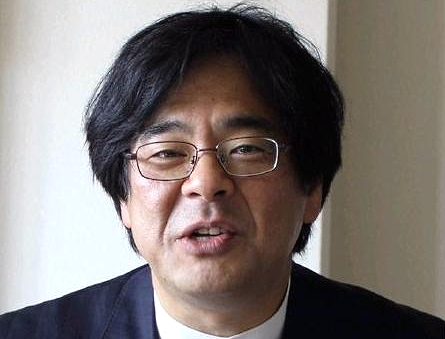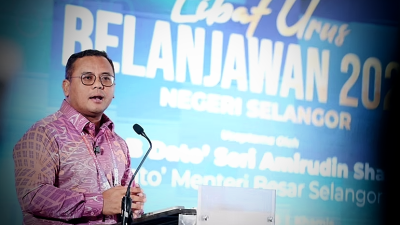
By Professor Tadashi Kimiya
Following Prime Minister Shinzo Abe's resignation, former Chief Cabinet Secretary Yoshihide Suga was inaugurated as the new prime minister of Japan. Especially in South Korea, the media and others have criticized Abe's historical revisionism, likely because they considered it the main reason for the currently deteriorating Japan–South Korea relations. There also seems to be a vague sense of expectation for renewed Japan–South Korea relations with the Suga administration. This is because it is undoubtedly true that former Abe's rather ideological historical revisionism with regard to historical perception contrasts with Suga, a politician who is more pragmatic than ideological.
Nonetheless, as indicated by the new Suga administration's stated intention to continue the policies of the Abe administration, it appears unlikely that Suga will personally take the lead to break the deadlock in Japan–South Korea relations, where tensions are rising at the moment. Rather, Japanese–Korean antagonism is set to intensify when the Japanese government implements retaliatory measures in response to the damage done to Japanese companies by the liquidation of Japanese corporate assets in Korea, which accompanied the Korean Supreme Court ruling in October 2018 ordering Japanese companies to pay compensation to former "forced laborers."
Moreover, the current tensions cannot be reduced to administration-level issues caused by very recent events. We have to look for the cause in state-level issues caused by the structural transformation in Japan–South Korea relations known as "asymmetric to symmetric," which became striking starting in 2000. As a result, competitiveness intensified in both Japan and Korea, creating a situation where neither can compromise by being the first to concede. Moreover, although the need for security and economic cooperation previously suppressed the manifestation of disputes over history, the obvious split between Japan and Korea in their responses to the North Korea problem and the tensions between the United States and China has made it difficult for this mechanism to operate.
Besides this, there has been an accumulation of issues to further worsen tensions. An agreement on the comfort women problem was reached between the Japanese and Korean governments at the end of 2015, and although the Moon Jae-in administration has not scrapped it, it is not executing it since "it will not solve the problem." The Japanese government also revised export controls on Korea in July and August 2019, citing as its reason that Korean export controls are not being trustworthy from a security perspective. As such, it elected to implement a de facto preventive countermeasure against the Korean government for not adopting an effective response to the ruling. Countering this, there was a movement in Korea to boycott Japanese products and to avoid travel to Japan as tourists. Meanwhile, in connection with the registration of "Sites of Japan's Meiji Industrial Revolution" as world cultural heritage, the exhibits at the Industrial Heritage Information Center, dedicated to people from the Korean peninsula and elsewhere who were taken to certain sites against their will and forced to work under harsh conditions, emphasized testimonies saying that, "persons from the Korean peninsula were not treated discriminatorily." The Korean administration harshly criticized this as an "agreement violation." In this way, the history problem is not only creating antagonism in economy and security, but is a vicious circle that spins off new history problems.
Not only this, but each government is suspicious of the other, thinking that it is using this antagonism for domestic political benefit. This would suggest that the current tensions are "the other country's fault" rather than "our fault." One government would be happy to consider matters if the other compromises, but there is no intention at all to compromise myself.
I think the Korean government needs to show more initiative, at least to stop the liquidation measures stemming from the Supreme Court ruling and avoid a collapse. This is not because the Japanese claims are more "legitimate" than the Korean ones. Rather, it is because Korea needs to be held more accountable as it seeks to change the status quo created by the Supreme Court ruling. Moreover, Korea will be driven into a more difficult situation by the U.S.–China conflict, which is likely to intensify given the COVID-19 pandemic and North Korean nuclear missile development, so it has a more urgent need for cooperation with Japan. Korean diplomacy is "the U.S. for security, China for the economy, and the U.S. and China for the North Korea issue," so it has no choice but to rely on the U.S. and China. As such, an intensifying dispute between the United States and China is a red light for the sustainability of Korean diplomacy. The rational thing to do is to build a cooperative relationship with Japan, with whom interests are most compatible with respect to the U.S.–China conflict and the North Korea problem.
This applies not only to Korea but also to Japanese diplomacy. The Japanese government should not stare so fixedly at the Japan–Korea split in the context of its response to the U.S.–China conflict and the North Korea problem, but should focus more on the commonalities. I hope that the new Suga government reconfirms Korea's position in Japanese diplomacy with regard to the intensifying troubles between the United States and China conflict and the North Korea problem, while reevaluating the importance of Japan–Korea cooperation. The new Japanese government should think about how not to exacerbate history problems as well as how to manage them so that it does not spill over to the economy and security. For this, my hope is that the change in administration can serve as an opportunity to achieve closer communication between Japanese and Korean leaders as well as for the Suga administration to convince the Korean government to present a constructive compromise plan for the liquidation measures.
(Tadashi Kimiya is Professor at the University of Tokyo, Japan.)
ADVERTISEMENT
ADVERTISEMENT


































